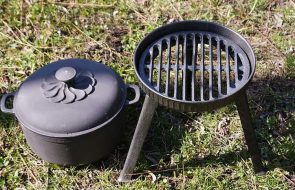Aluminum cookware has been popular with housewives for many generations, and it is not surprising. Kitchenware made of aluminum is light, cheap, practical and durable. With proper care, such utensils will look neat and shine for many years without losing their appearance.
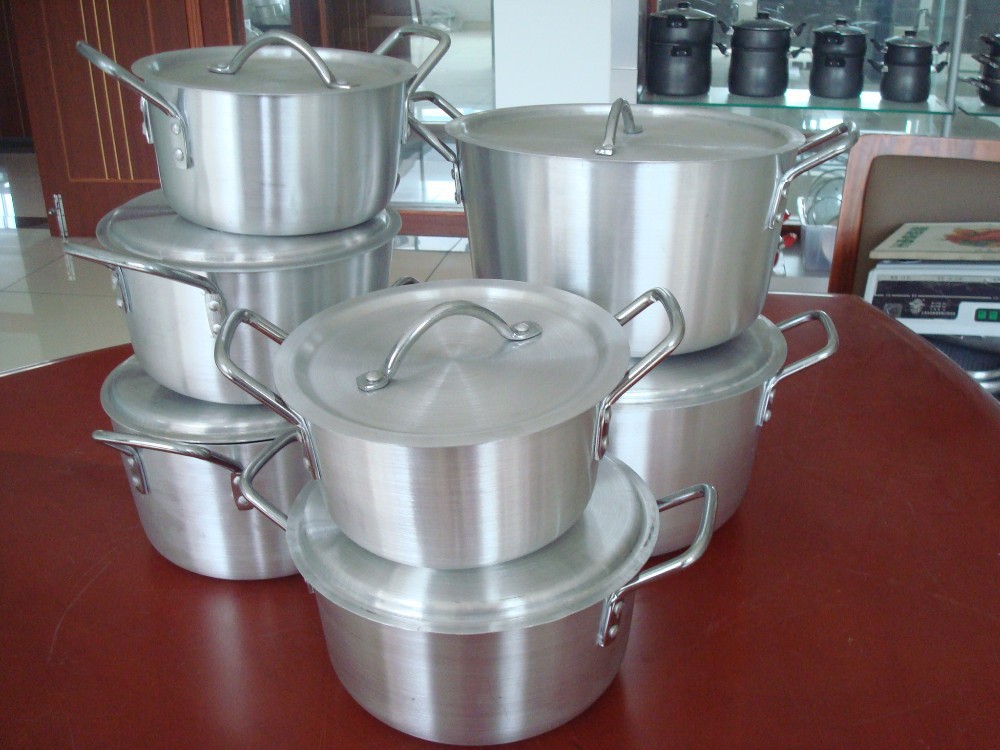
But it is very difficult to keep the pan looking new if you regularly cook food in it, boil milk and water, something inevitably "runs over" or burns. Scale, carbon deposits, blackening, spots and rings appear inside. How to clean an aluminum pan so that it looks like new again?
Content
- Features of using aluminum cookware
- Causes of contamination of aluminum pans
- How to clean an aluminum pan inside and out
- What to do if the pan has oxidized
- Cleaning an old saucepan
- We return shine and newness to aluminum cookware
- How to clean a burnt aluminum pan
- How to prepare and care for an aluminum pan
- VIDEO: How to clean a burnt pan.
Features of using aluminum cookware
To determine how you can clean a specific aluminum pan with improvised means, at home, without damaging the surface and to a shine, it is worth understanding why the cookware deteriorates and loses its appearance, so that this does not happen again in the future.
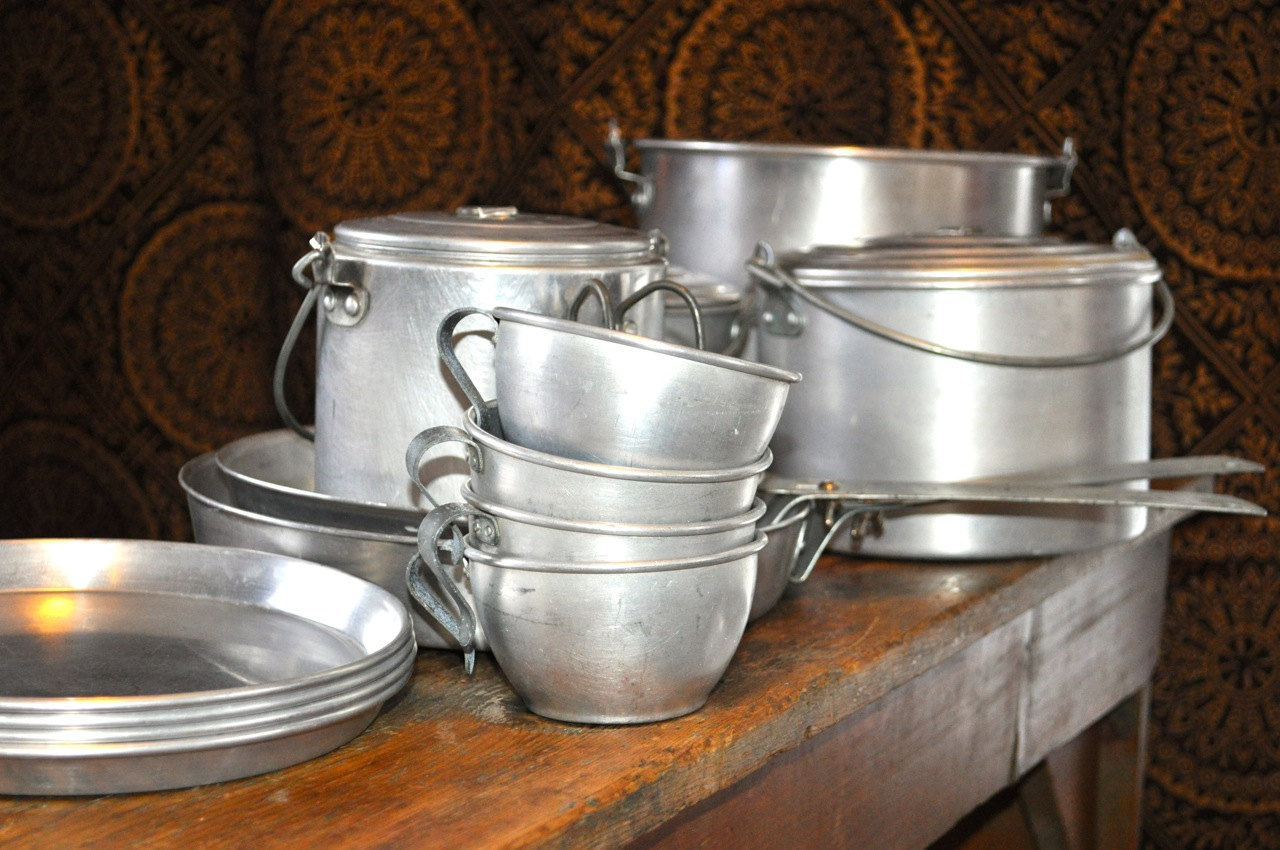
First of all, aluminum is a very soft and pliable metal, you can’t handle it roughly. Aluminum kitchenware is “afraid” of high temperatures, fire, and mechanical damage. If you put it on high heat, a black deposit will appear on the outside, which will be difficult to remove. And if porridge burns or milk boils over, it will be difficult to remove the marks, since the soft metal surface absorbs any dirt well. Aluminum cannot be rubbed with abrasives, a hard metal brush or scraper - the surface will be scratched and will become even more susceptible to dirt.
Causes of contamination of aluminum pans
If the pan is very old, it has simply darkened over time, even with proper care, and there is nothing to do, it is better to buy a new one. But if the cookware is a few years old, it could have turned black for various reasons, and the stains can be removed.
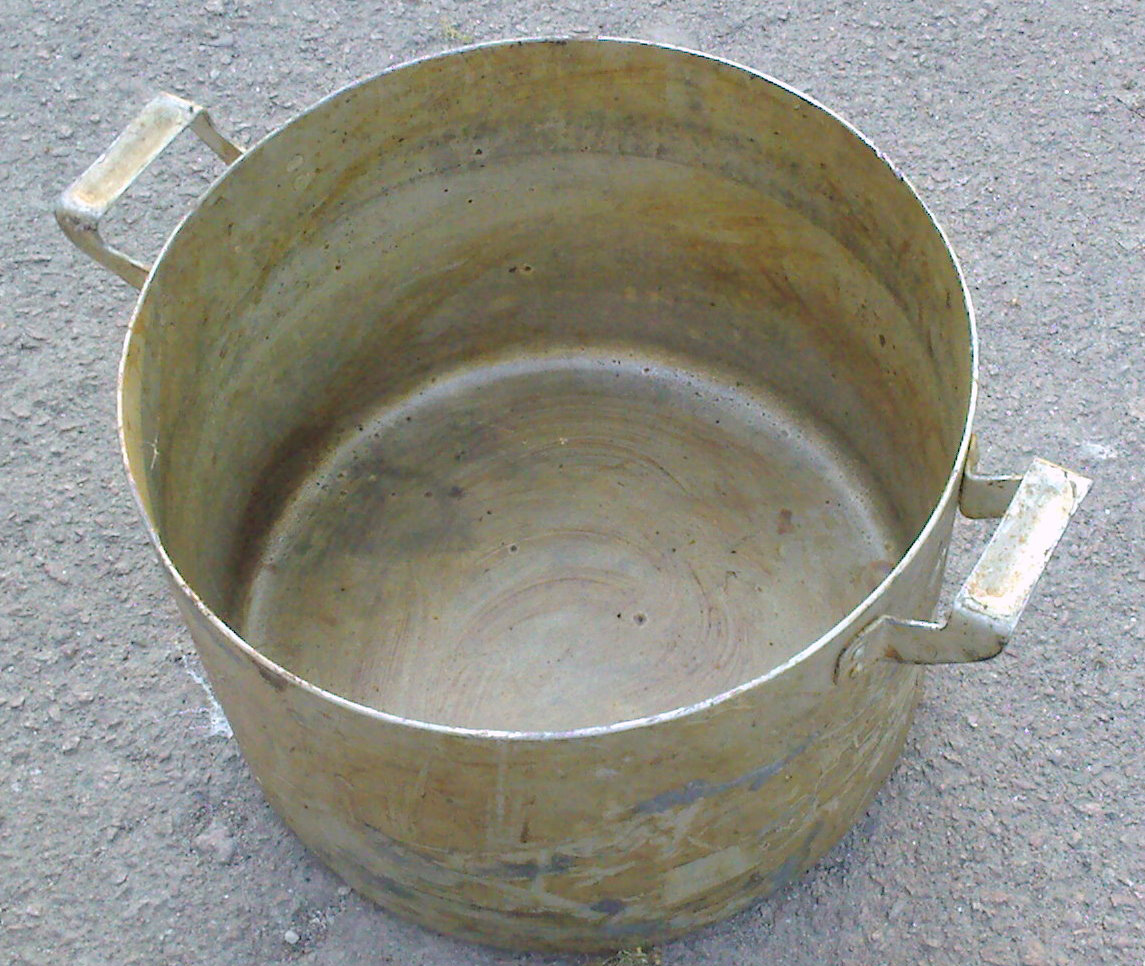
The main reason is improper care. You should wash aluminum utensils with a sponge with a hard but gentle surface, which will cope well with dirt, but will not scratch the surface. Another reason for dirt is improper use. Do not put the saucepan on too high a fire: not only will the food burn, but the fire will also soot the metal from the outside. You should cook carefully so that nothing burns or sticks, since aluminum heats up, and when, say, milk or fatty broth flows along the heated walls, it literally “sticks” tightly, and it will not be easy to clean.
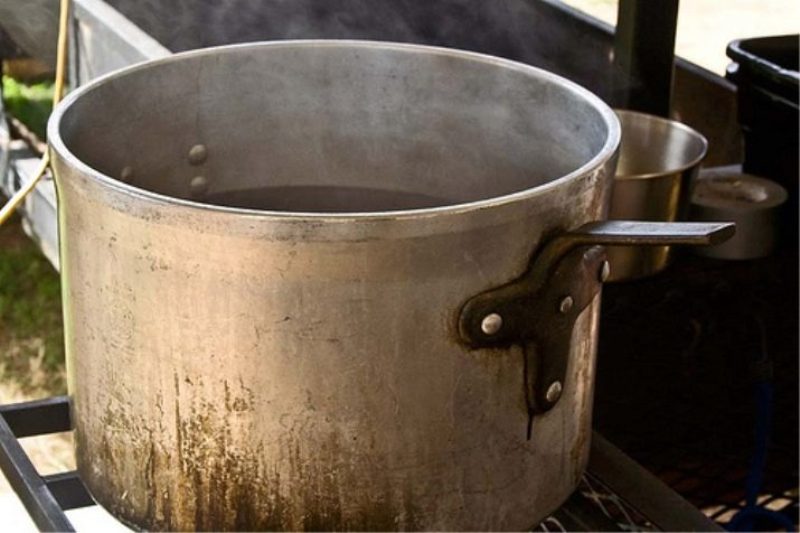
How to clean an aluminum pan inside and out
If your aluminum cookware is dirty and regular washing does not solve the problem, try choosing one of the methods that we will offer you in this article. Choose a cleaning method depending on the type and nature of the dirt, and remember that further care and proper use determine how soon you will have to repeat this troublesome procedure.
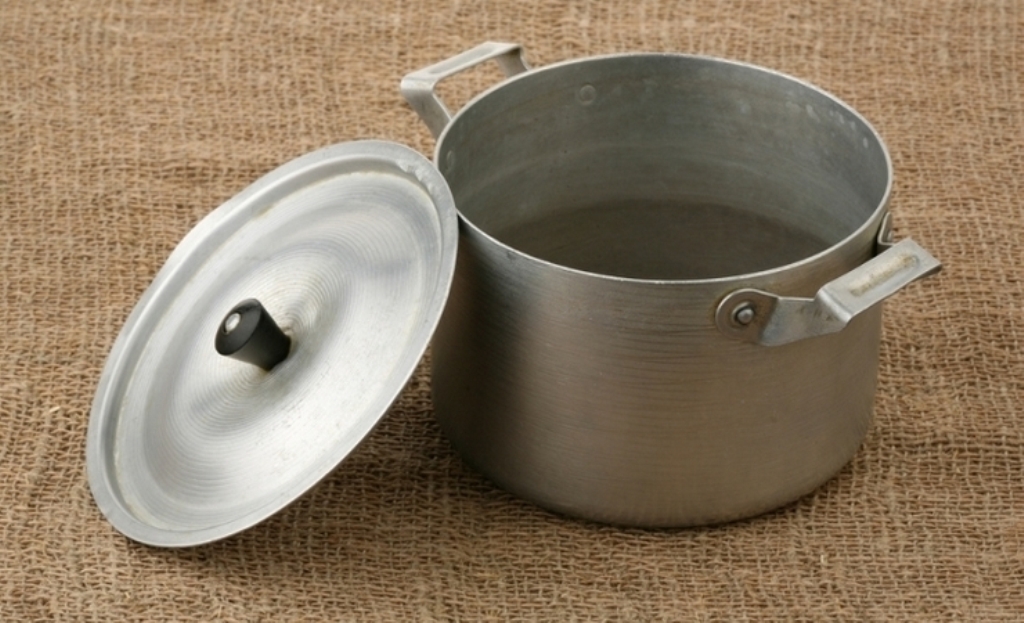
Cleaning from light blackness and carbon deposits
First, let's look at what to do if your aluminum pan has darkened slightly over time, both inside and out, and how to properly clean this type of contamination.
To clean small black or yellowish spots, the most effective and gentle method is boiling. Aluminum will not be damaged by boiling water, and its surface will become shiny and new. The main thing is to find a container larger in volume than the pan you are going to clean. Pour water into the container and place your pan there, pour water inside it too. It should be completely immersed in water, then put the container on the fire.
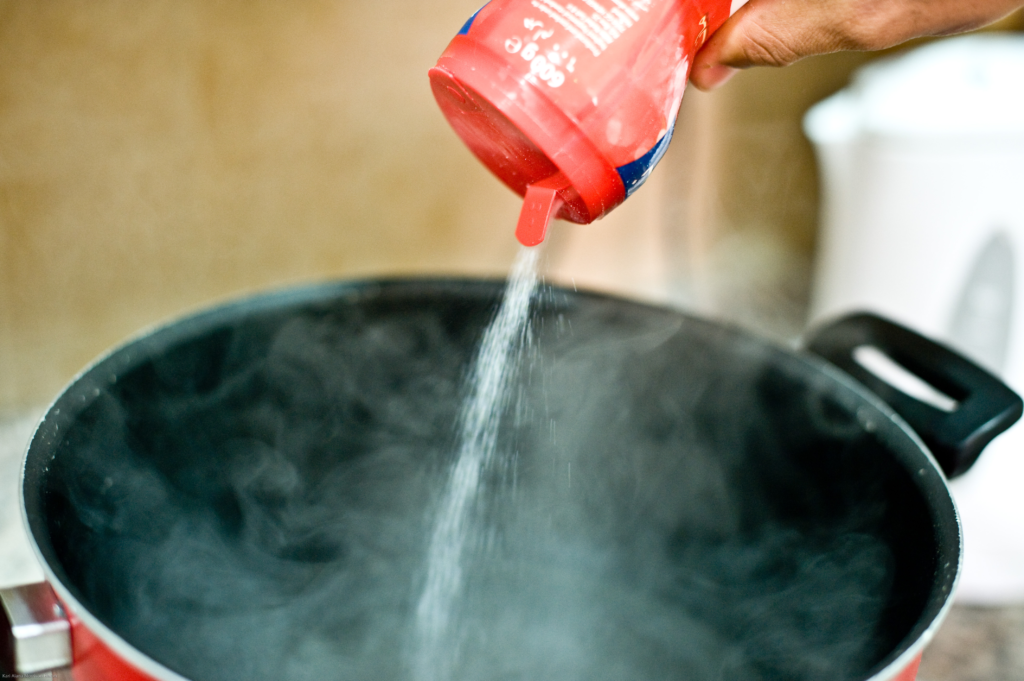
When it boils, reduce the heat and let it boil for half an hour, adding water if necessary. After that, leave it to cool down to a temperature where you can put your hand in the water. With the same water, wash the saucepan inside and out with a sponge, rub it gently. Rinse well with running water and enjoy the result.
How to remove traces of burnt milk
Blackness, soot and carbon come off easier than burnt food products; boiled-over milk is especially difficult to wash off.
The most effective way is to boil it again, but add vinegar to the water. Boil your pan in acidified water, and the milk stains will come off easily with a sponge.
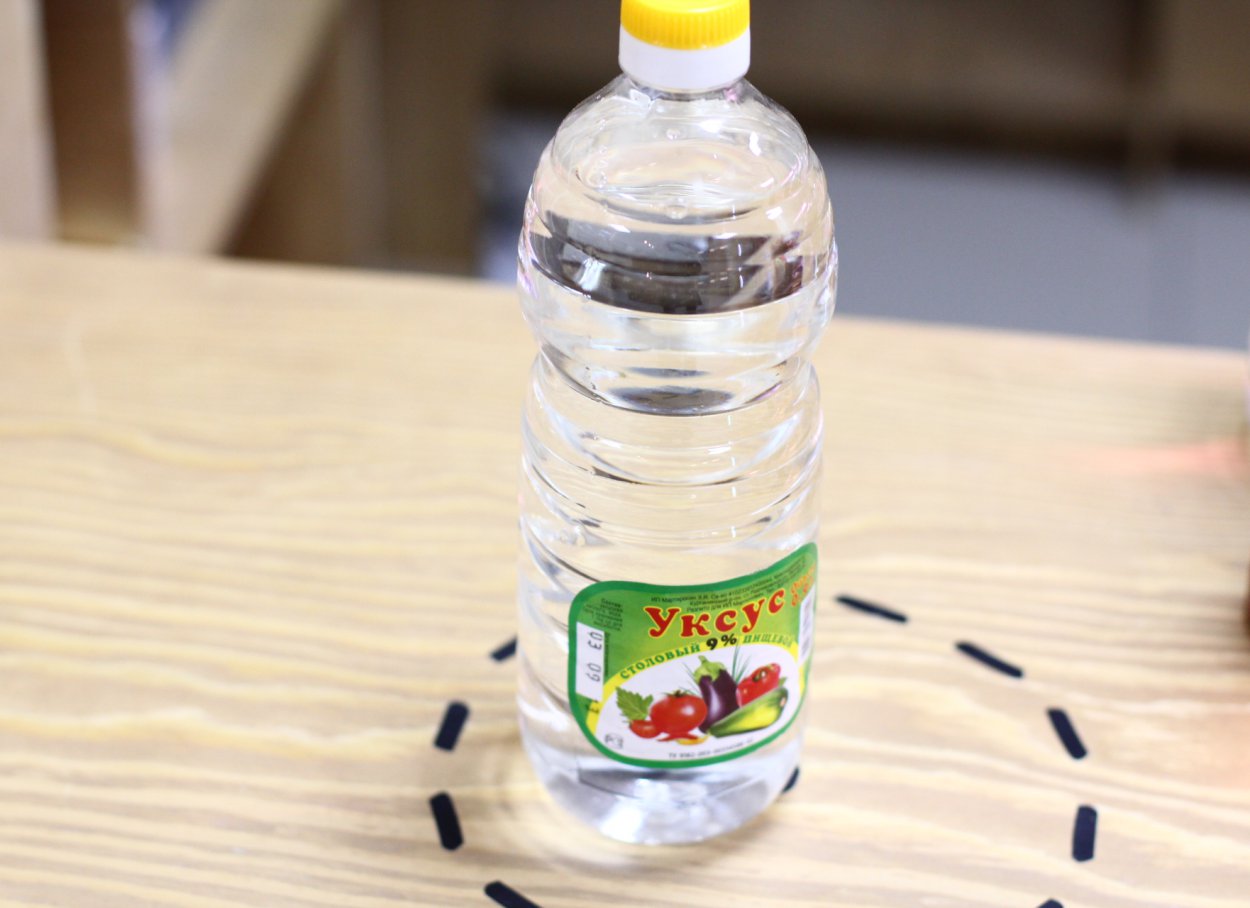
We remove heavy deposits from burnt food and dark spots on the inner walls
Cleaning a pot in which food is badly burnt is not easy. The main thing is not to scrub with a hard scraper, as this will seriously damage the metal.
Pour water into the saucepan, add vinegar and citric acid in the following proportion: 1 tbsp. of vinegar and 1 tsp. of acid per liter of water. Put this acidic solution on the fire and bring to a boil. Then let it simmer for 20-30 minutes on low heat, then carefully scrape the carbon deposits with a wooden spatula to remove the top layer, and then wash with a sponge.
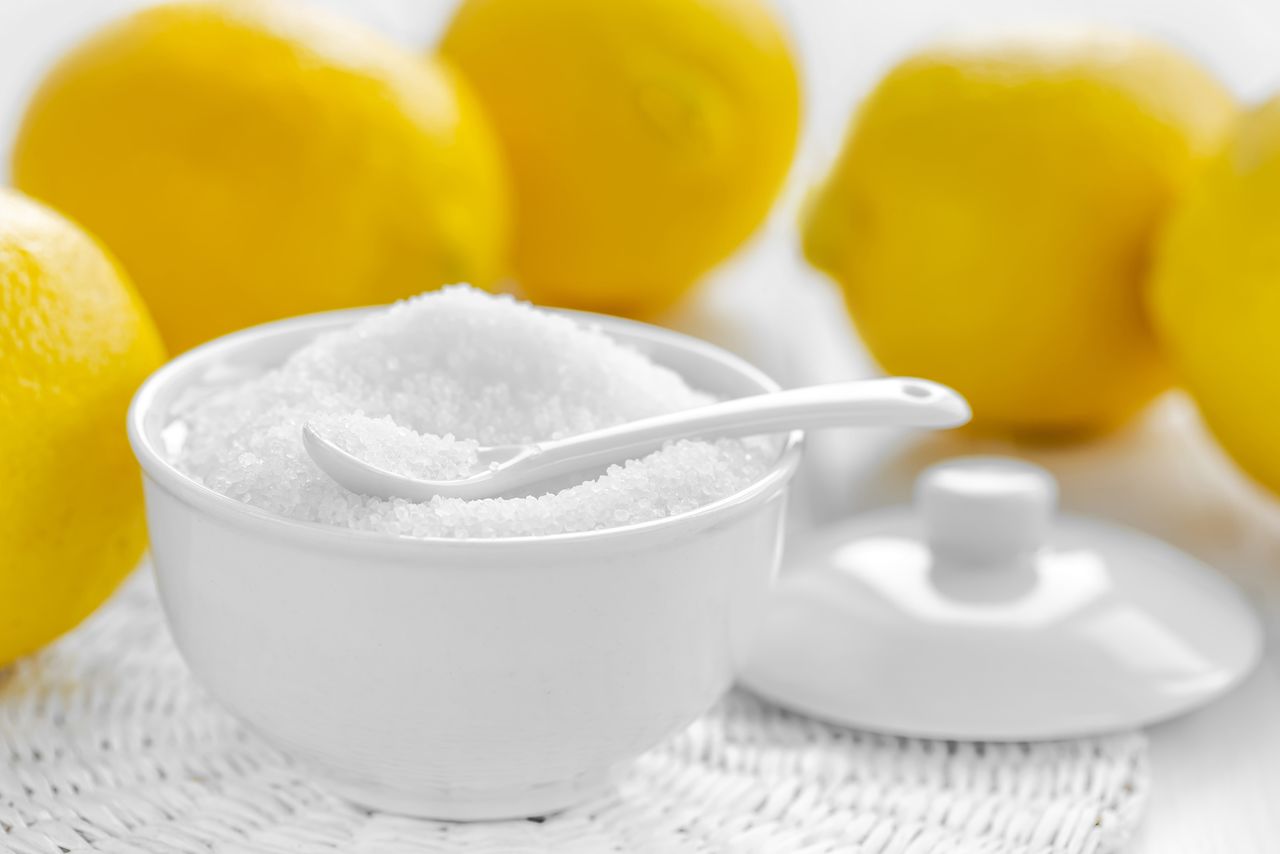
How to remove residual fat
If you have a fatty broth or soup that has boiled over, or a fatty layer has burned inside an aluminum pan, acid will do a good job of removing it. Pour water into the pan and dilute with vinegar in a proportion of 1 tbsp. per liter of volume. Put on the fire and boil for 10-15 minutes, then drain the water and lightly wipe the inside surface with a sponge.
Then fill the pot with water again and add some regular dishwashing detergent and boil for another 10 minutes. Now you can wash the pot, all the fat will come off.
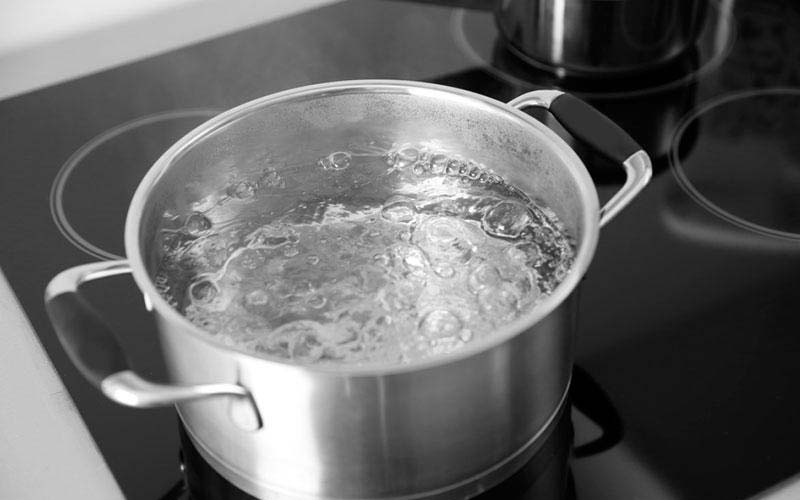
How to clean limescale
If the pan is "covered" with limescale and scale, it is very easy to clean it, the main thing is not to scrape or rub. Pour water into it and add regular baking soda, one tablespoon per liter of water. Boil for 10 minutes, then wash with a sponge.
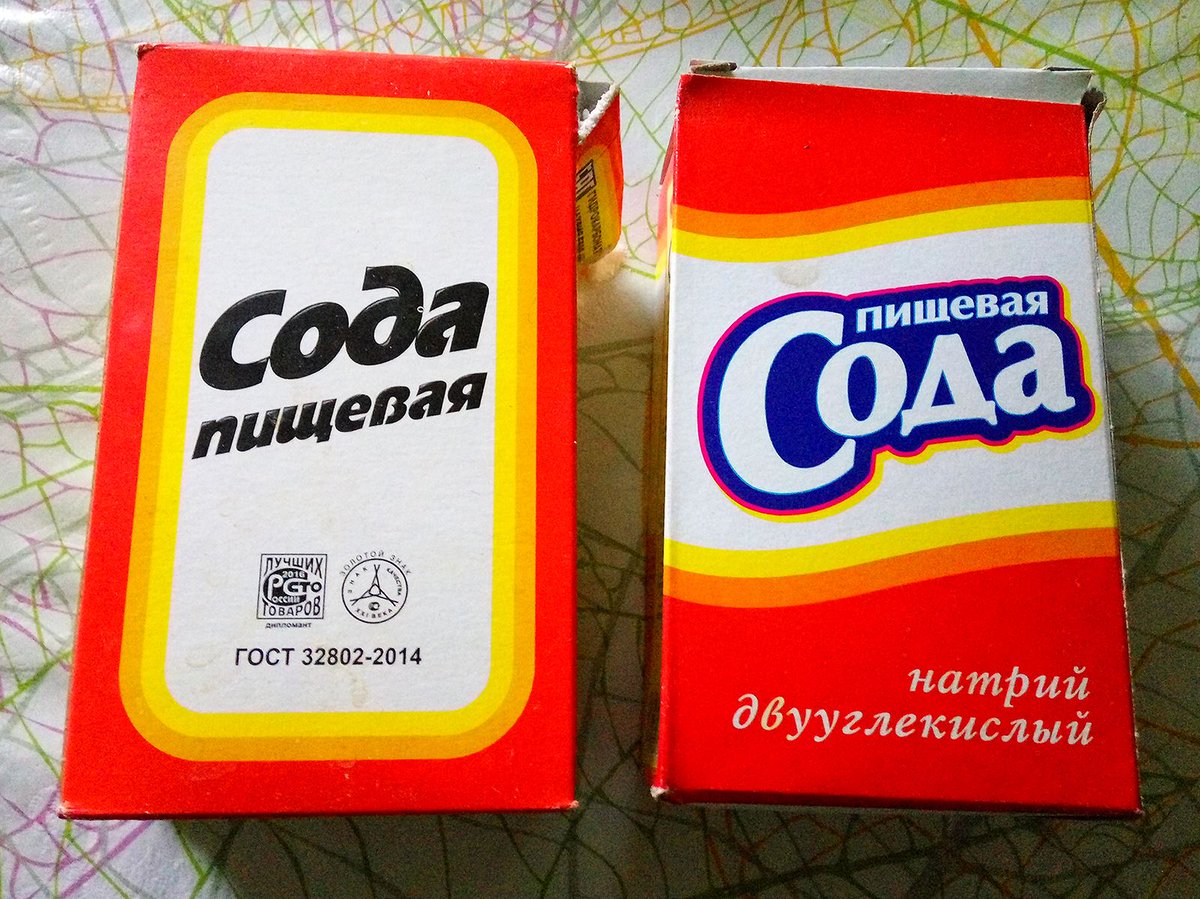
If not all the scale is gone, simply repeat the procedure.
How to clean heavy soot and carbon deposits from the inside
If the inside of the pan has not just darkened, but literally turned black from burnt fat, soot and carbon, do not rush to throw it away. Try to cope with a proven method.
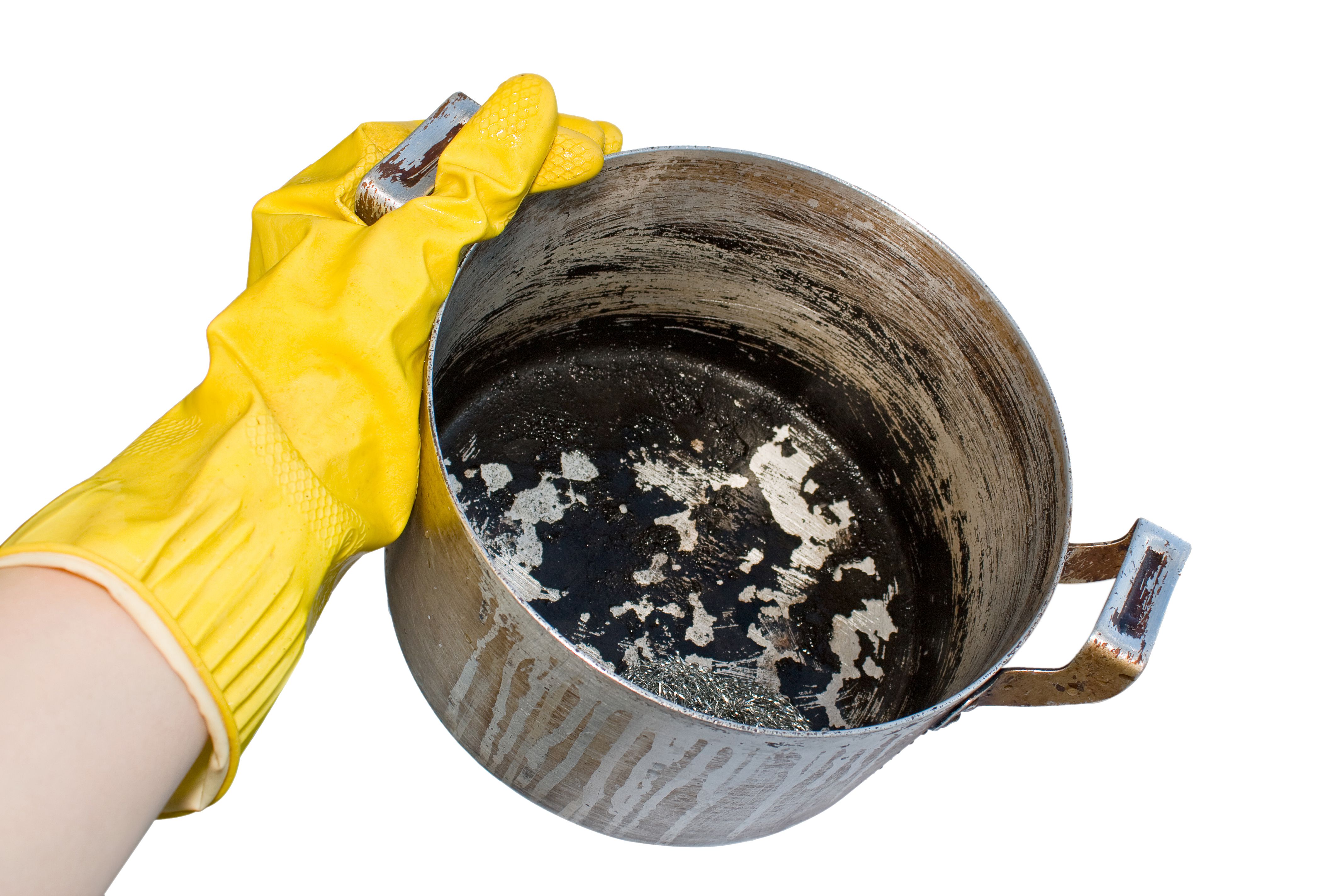
To remove soot and carbon, pour vinegar solution into the pan and leave for several hours. Then pour out the solution and pour in a new one, boil for half an hour and wipe with a sponge. Repeat the procedure if necessary.
What to do if the pan has oxidized
An aluminum pan can not only become contaminated with burnt-on food, soot or scale, but also oxidize. Due to oxidation, it darkens, becomes dull and loses its appearance, becoming untidy and sloppy.
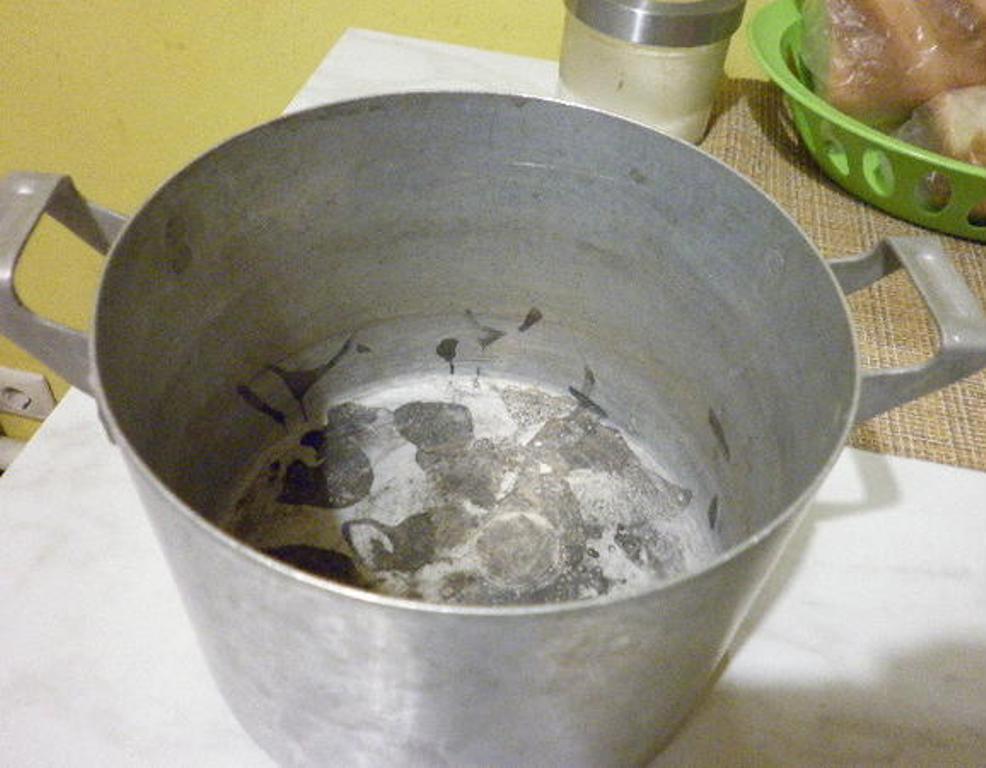
To clean an oxidized pan, try wiping it inside and out with a regular lemon cut in half. An apple also works well. Another way is to boil water with soda and then wash it with a sponge.
Cleaning an old saucepan
Cleaning an old pan with burn marks or dark spots is not an easy task. Try boiling it in a vinegar solution and then scrubbing it with a sponge.
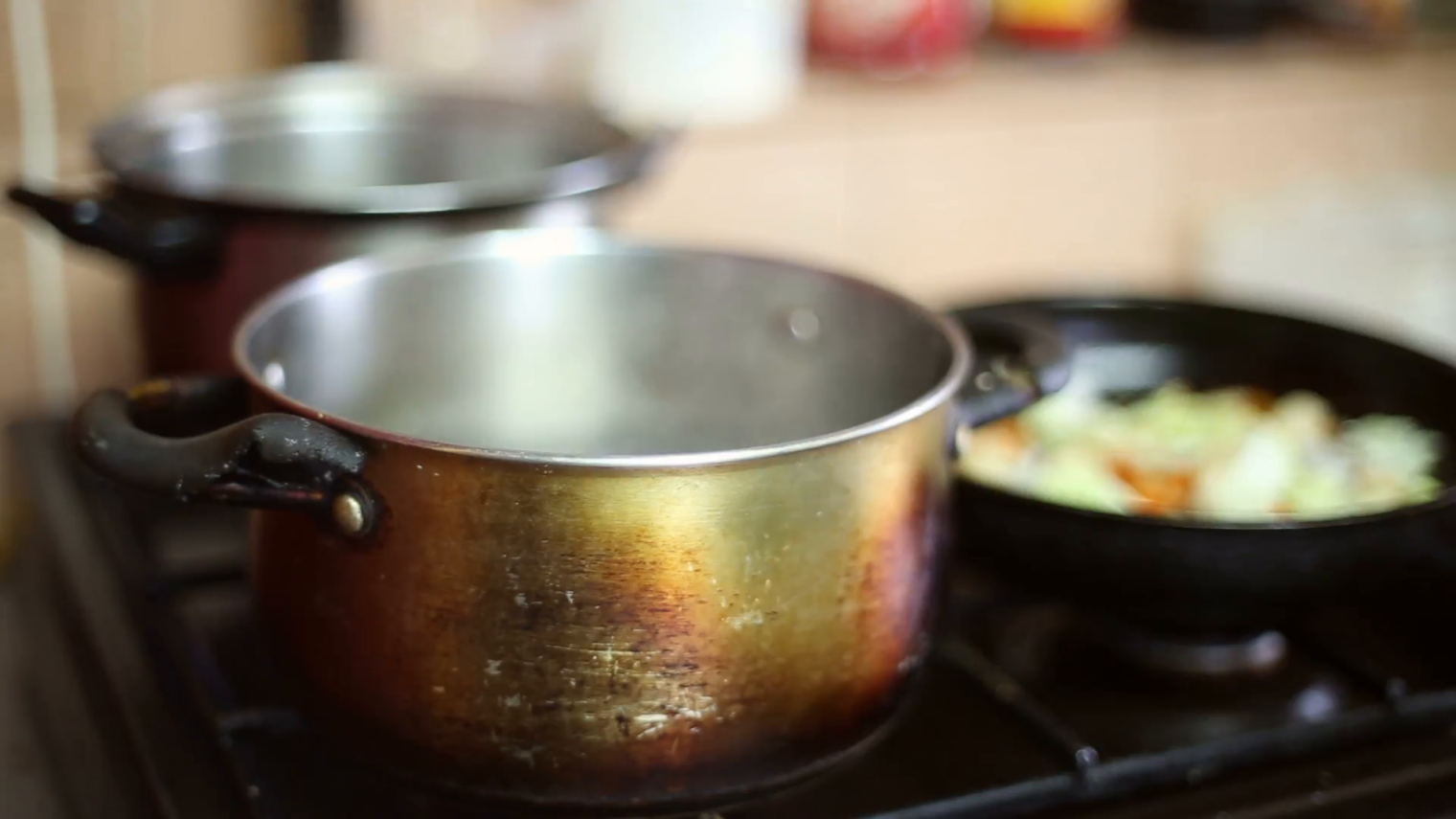
Soda works well, but you can't rub the surface with it, you can dissolve it in water and boil it. Boiling helps best, and if the pan is very old, the procedure should be repeated two or three times.
We return shine and newness to aluminum cookware
Soot and darkening, old stains are susceptible to acid and alkali. To restore a new look and shine to old aluminum cookware, simply wipe it with a sponge soaked in a vinegar solution. You can also use lemon or citric acid.
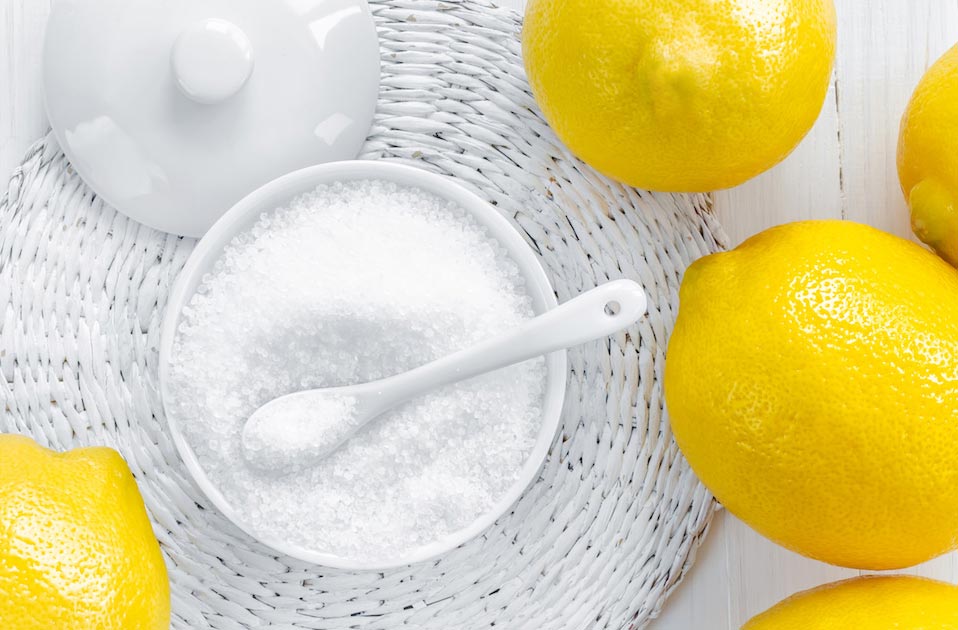
Regular brine or sour kefir will help restore the shine to the inside of the pan. Just pour it in and leave for a few hours, then wash as usual.
How to clean a burnt aluminum pan
Previously, burnt food was dealt with using an original method: you need to take one onion, peel it, put it in a saucepan and fill it with water, then boil it.
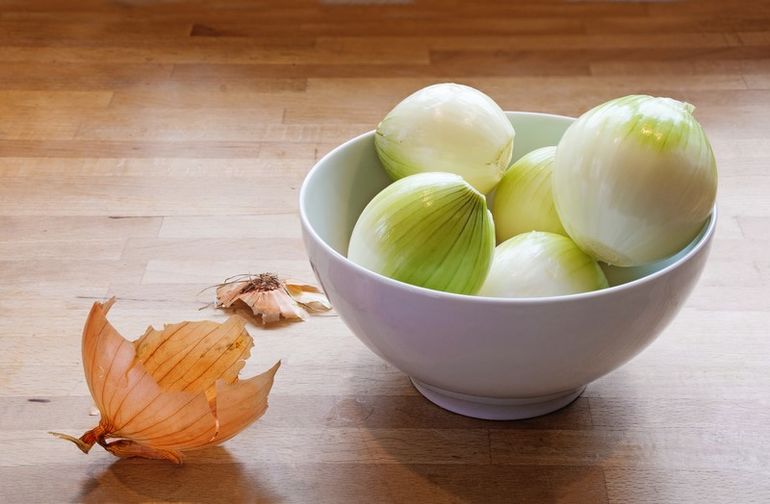
Ammonia also works well with laundry soap. A couple of drops of ammonia, a little soap (grate), and boil.
We use "Corvalol"
Regular Corvalol does a great job of cleaning an old aluminum pan. Try this "grandmother's" method.
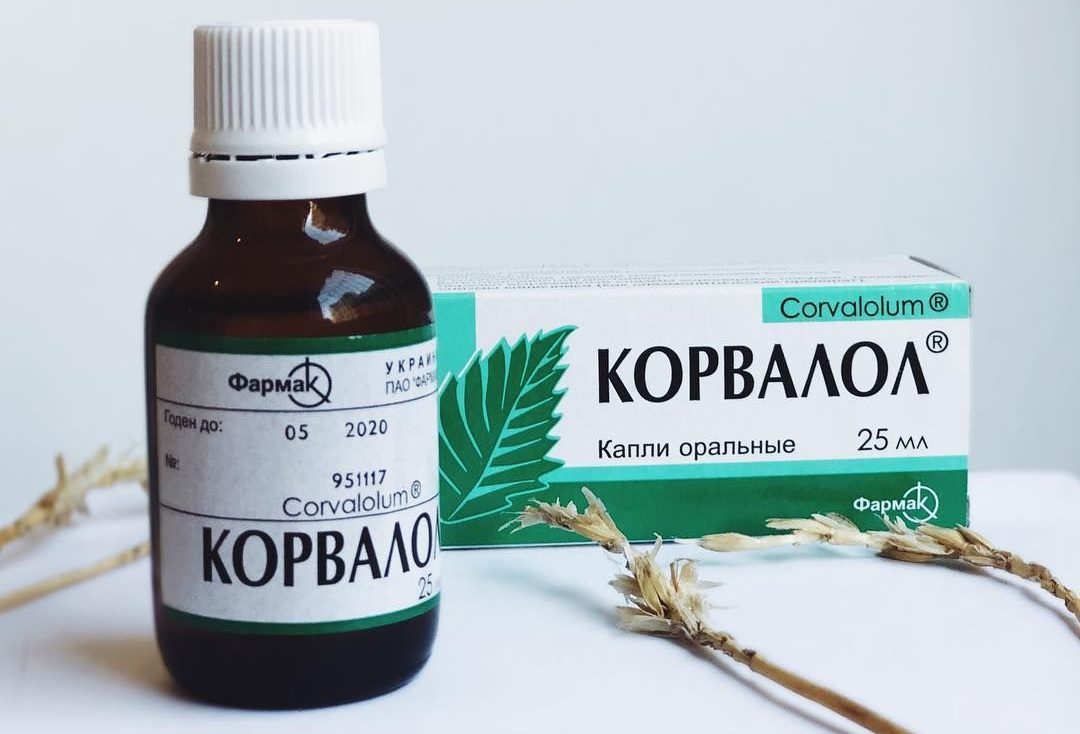
Just wet a sponge with regular Corvalol (in drops) and rub the aluminum surface until it shines. After that, very carefully wash twice with detergent and rinse.
Food products
Food products are good at removing soot, blackness and dark spots. Onions, lemons, and sour apples do a good job – these products can easily clean aluminum cookware.
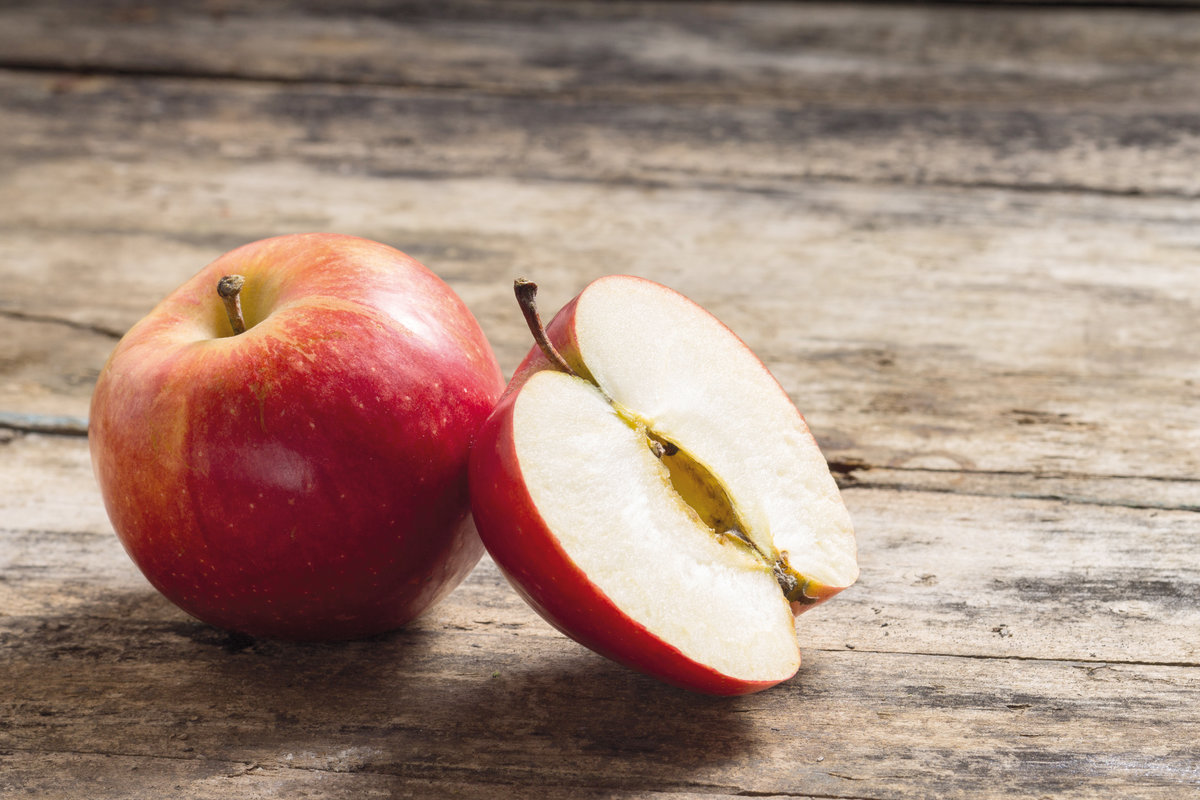
You can also use kefir or sour milk, cucumber brine, table vinegar. Sour products help to effectively but gently deal with dirt.
Citric acid
You can successfully clean any dirt with simple citric acid. It copes especially well with grease and old stains.
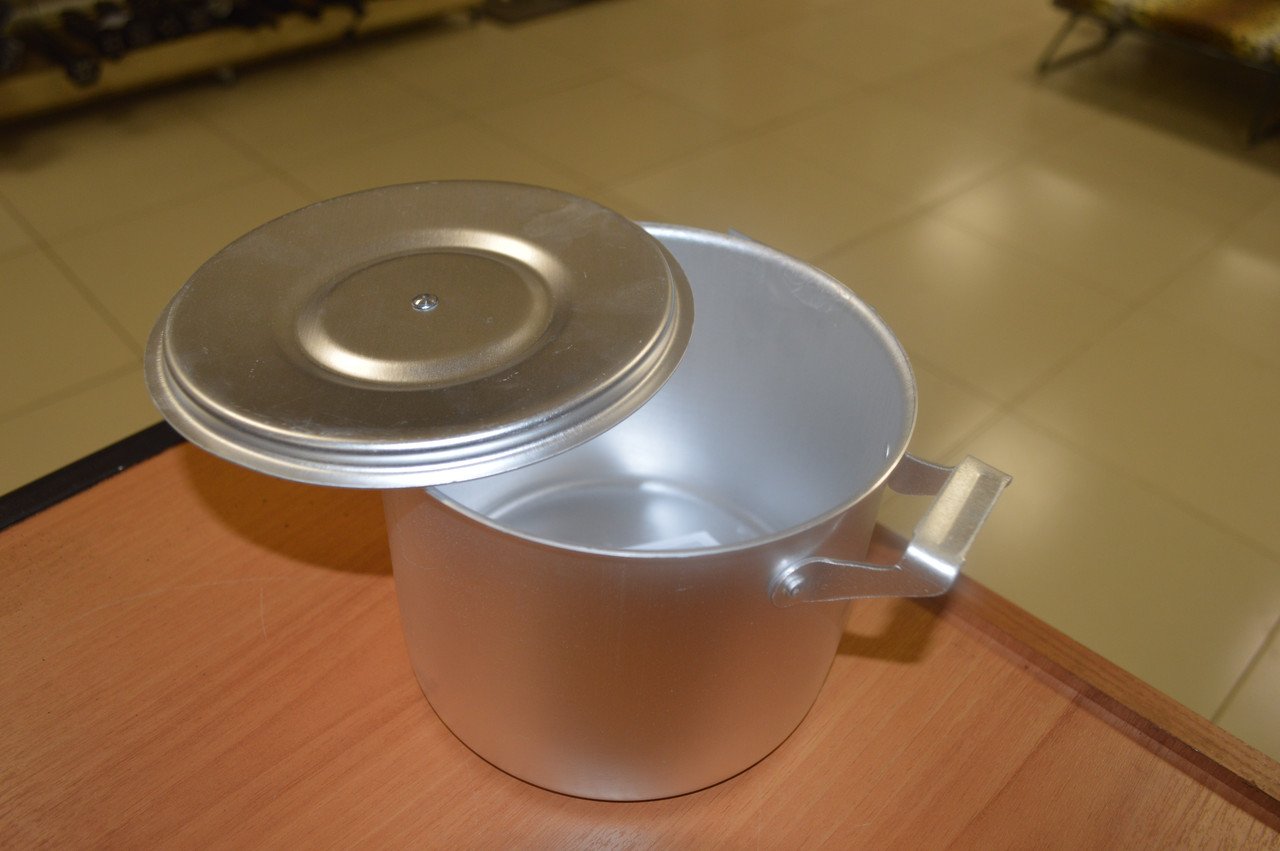
Dissolve citric acid in water, boil a pot or pan, or soak overnight.
Table vinegar
Vinegar is one of the most popular "cleaning agents". Acetic acid will help to deal with light dirt in no time, moreover, it helps to eliminate any odors and disinfects the surface.
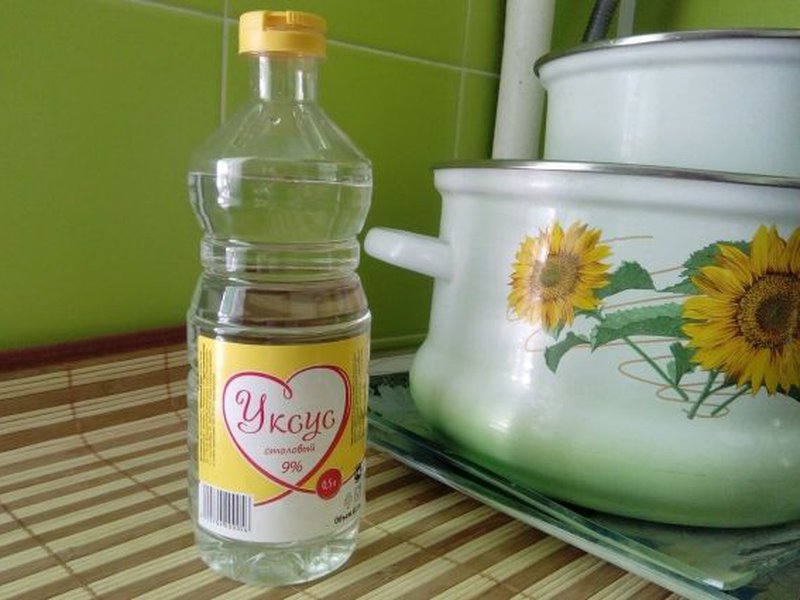
In case of heavy contamination, it is worth boiling and soaking the dishes in a vinegar solution, it is very effective.
Table salt
Salt helps to clean old stains, especially in combination with soda and alkaline soap, such as laundry soap.
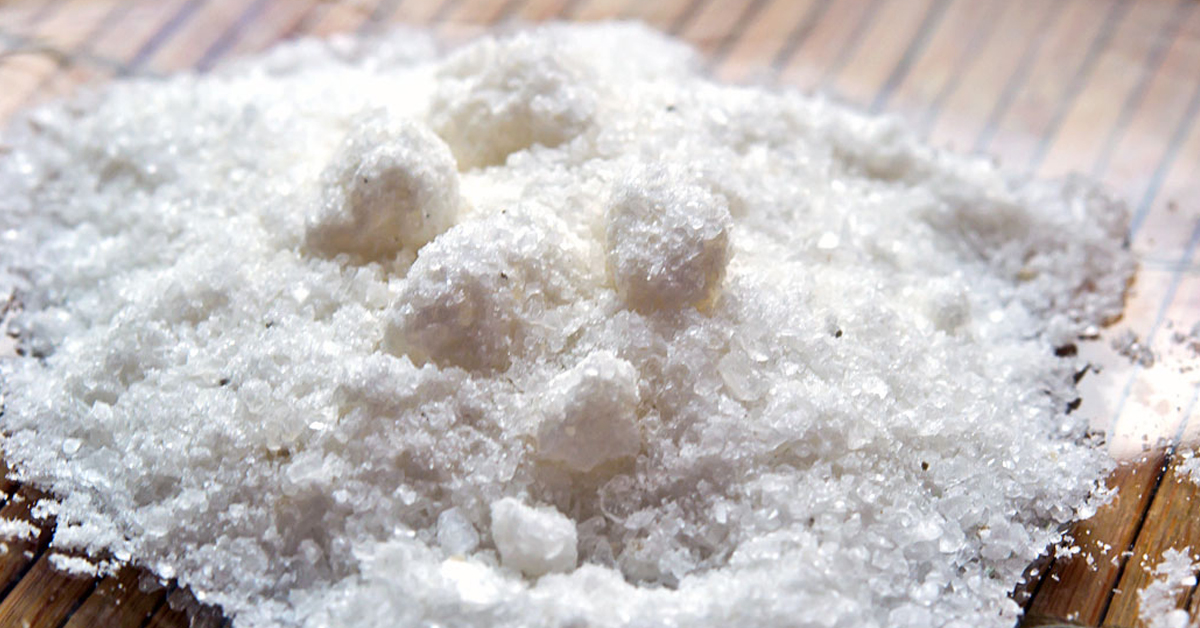
You can soak or boil aluminum dishes with a salt solution, then wipe them thoroughly. But never rub the surface with salt, as this will cause scratches.
Baking soda
If the pan is covered with carbon, old fat or has turned black, baking soda will cope with even the most difficult task. It is especially effective if used with laundry soap. One bar of soap, a pack of soda, a full pan of water - and boil for an hour. Then you can leave it all overnight, and in the morning take the pan out and wash it.
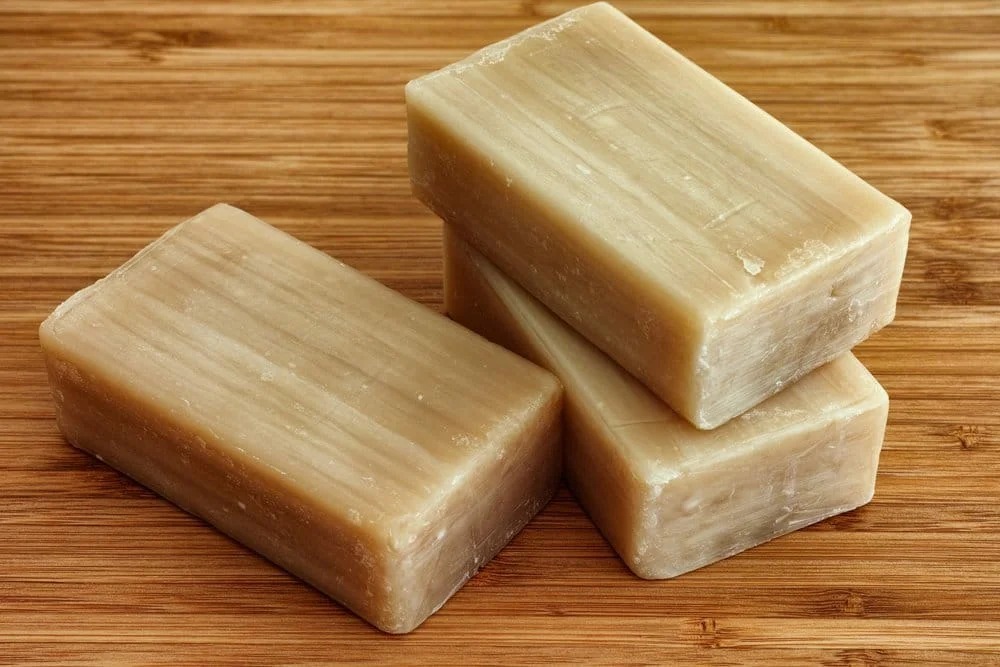
PVA glue
An interesting method of cleaning aluminum cookware is using glue. PVA glue or, more often, silicate office glue is used.
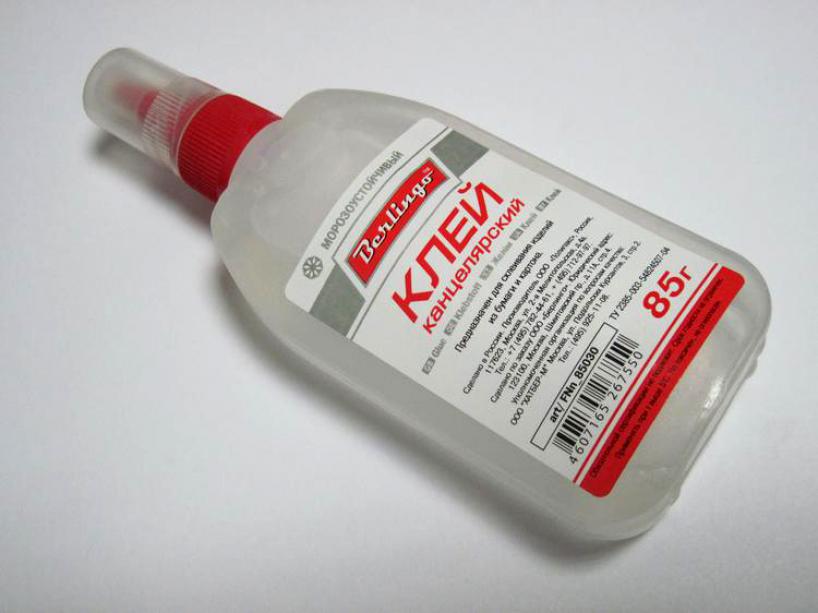
To prepare the solution, you need glue, water, a little vinegar or citric acid. This solution should be boiled in a saucepan, then washed with a sponge.
Activated carbon
Activated carbon, like Corvalol, helps to dissolve old grease and give the metal surface a shine.
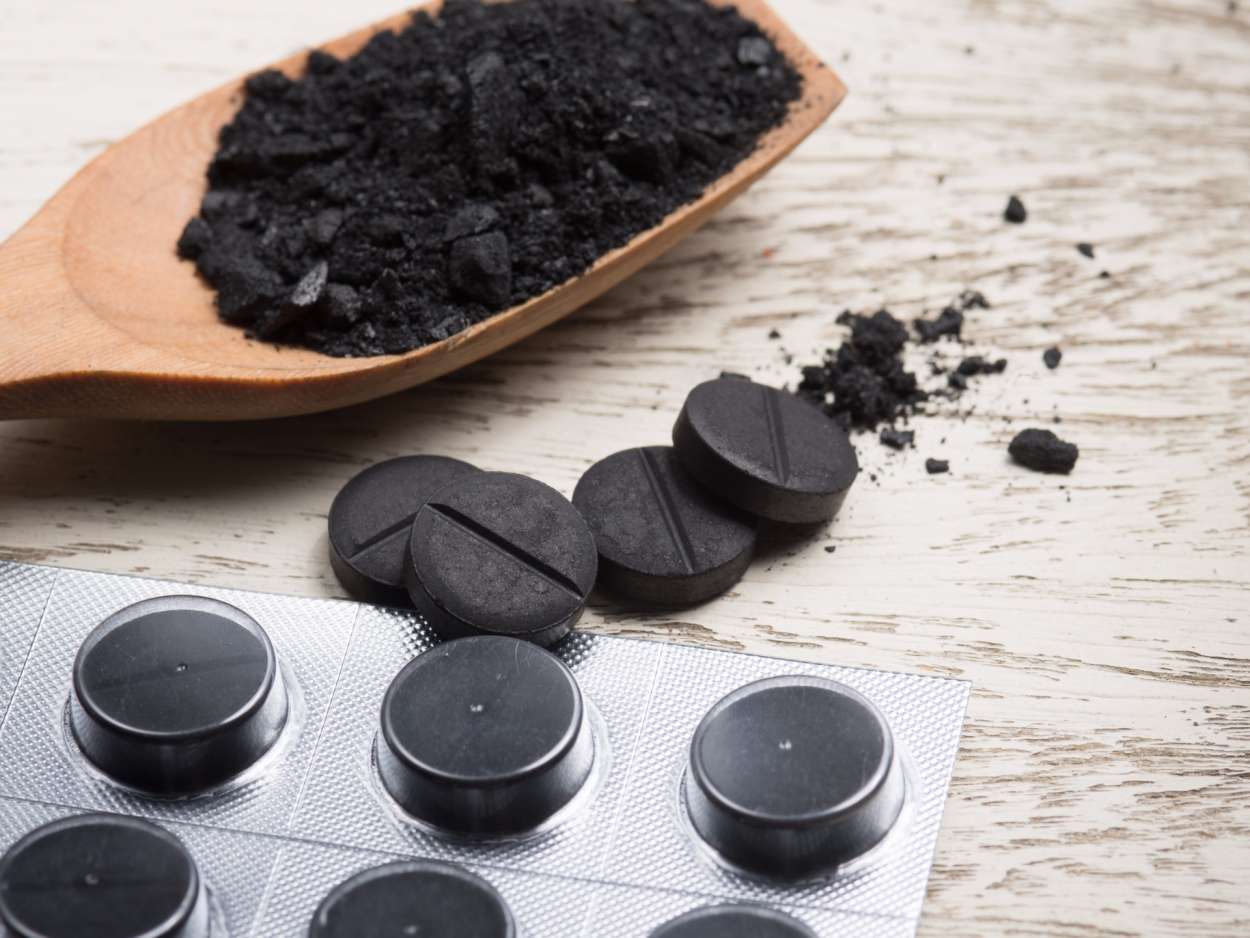
Activated carbon can be used for minor stains, if the dishes have become slightly oxidized or darkened over time. However, it is ineffective for heavy stains.
Special household chemicals
You can remove carbon deposits, soot and grease using special products, which are now widely advertised by a wide variety of manufacturers.
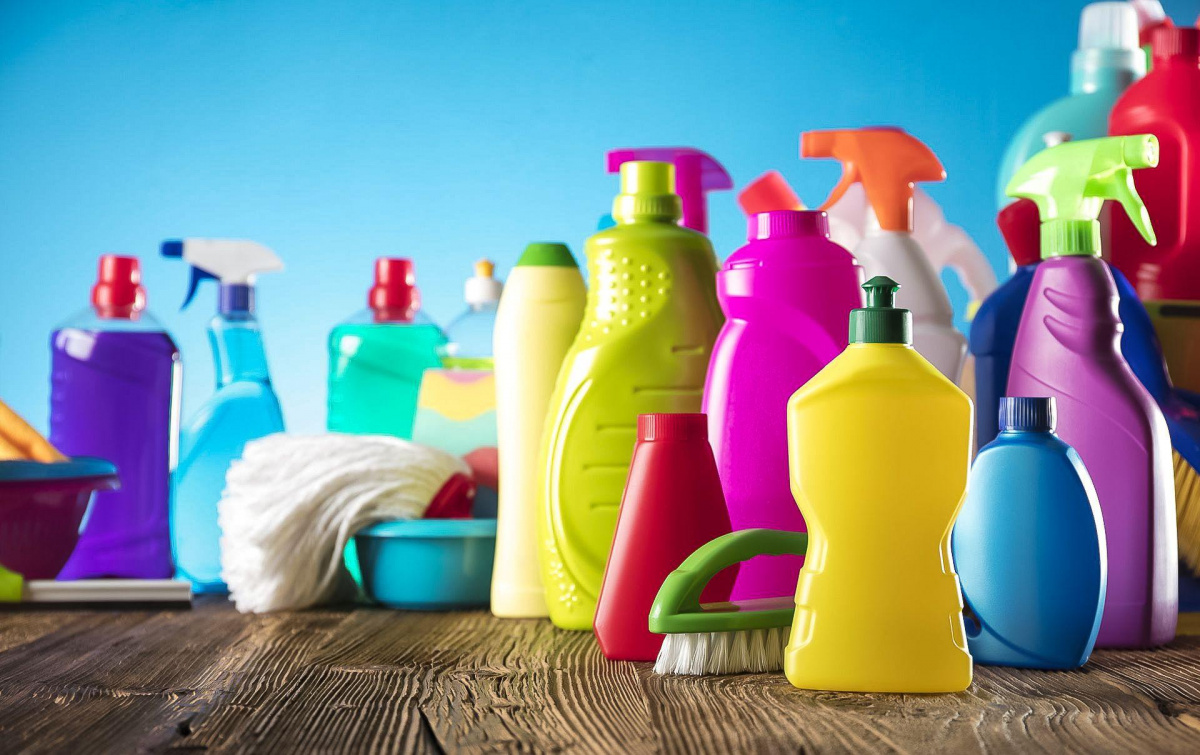
Creamy products and sprays are good options. They should be left on the surface for half an hour or more, then wiped with a sponge and rinsed thoroughly.
How to prepare and care for an aluminum pan
An aluminum pan should be used with care and properly maintained to maintain its neat appearance and shine.
If you bought a new saucepan, prepare it for use. Wash it in very hot water with regular laundry soap, and then heat it over the fire.
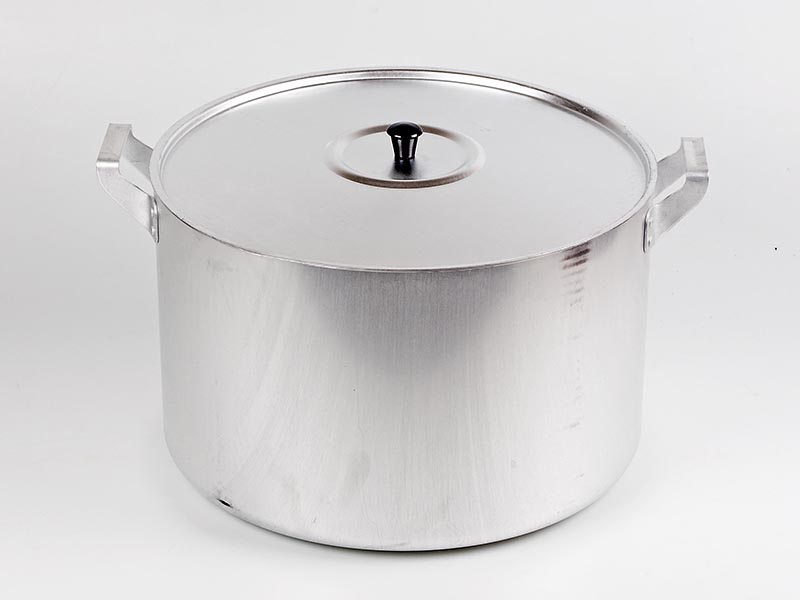
When using an aluminum pan, follow these rules:
- wash immediately after cooking;
- do not cook dairy products, do not boil milk in this container;
- do not cook over too high heat;
- Do not wash with abrasives or scrub with a hard brush.
Remember that aluminum cookware is fragile and soft, it gets dirty easily, but it is difficult to clean. Take care of it and use it correctly, and your kitchen will always be tidy!

